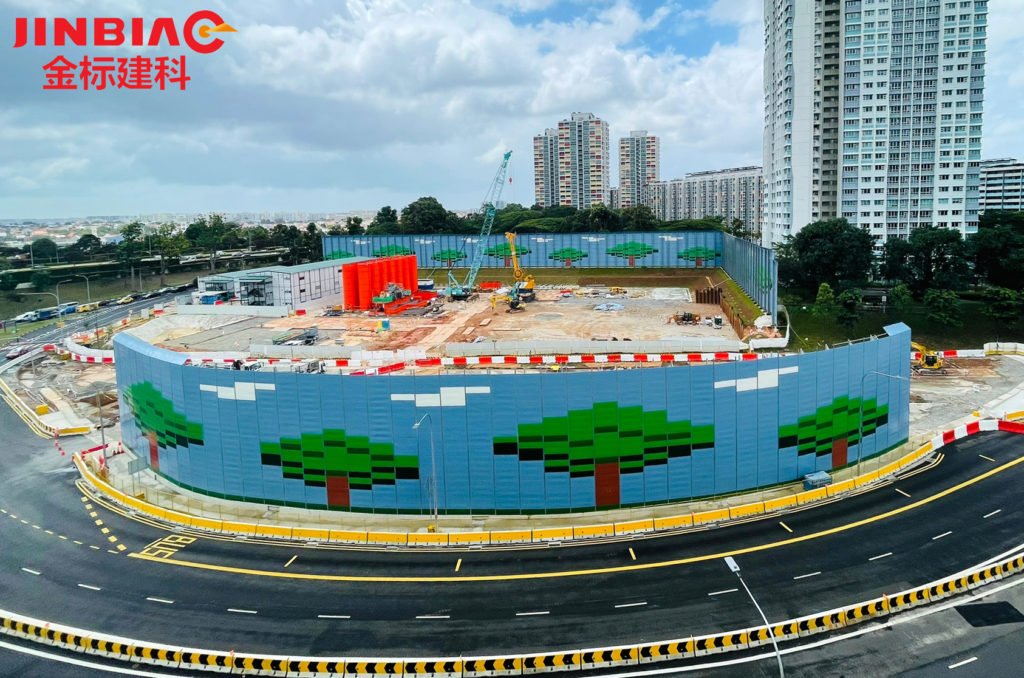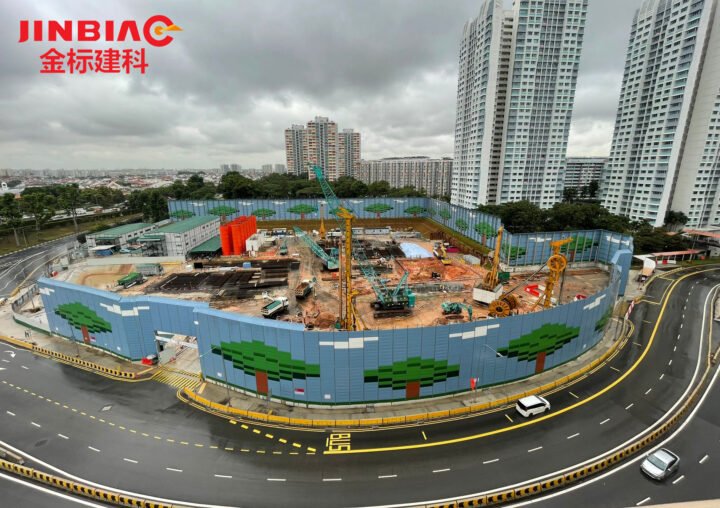
The sounds of our environments play a significant role in our daily lives, affecting stress levels, concentration, and general well-being. Noise barriers, also known as sound barriers or sound walls, shield us from unwanted noise, making them a crucial component of any property. Whether for homes or businesses, staying ahead of the maintenance curve is essential in ensuring these barriers continue to perform effectively
A noise barrier is a barrier wall or structure which absorbs or reflects sound. It’s an important design element for public and private spaces that need protection from noise pollution. Proper maintenance helps retain a barrier’s soundproofing benefits, making it as good as new for years to come.
Which Materials Comprise Your Noise Barrier?
Noise barrier construction comes in various forms, but the most common materials include:
- Wood: Often seen in residential areas, wood barriers can be pleasing to the eye but need specific care to maintain their appearance and effectiveness.
- Concrete: Usually used for highway sound walls, concrete barriers are rugged but can develop cracks over time.
- Metal: Common in industrial settings and along railways, metal barriers can rust if not properly maintained.
- Composite Panels: A preferred material for its blend of durability and aesthetic flexibility.
Each material type has its unique set of maintenance requirements.
The Step-by-Step Guide to Maintenance
When carrying out maintenance checks on your noise barriers, it’s vital to complete a thorough examination. Here’s how to go about it:
Regular Inspection
Frequent inspections will keep you informed about the conditions of your noise barriers. Look for cracks, erosion, shifts in position, or any other signs of wear that could impact their performance.
Checklist for Common Issues
- Cracks: These can develop over time, particularly in concrete barriers. Small cracks may not affect the integrity significantly, but large ones could be a sign of structural issues.
- Corrosion: Metal barriers are susceptible to rust, which weakens the structure. Look for any signs of rust or deteriorating paint.
- Settling: A barrier that’s no longer level or is leaning can indicate a need for urgent repair, especially if it was designed to retain earth or hold back noise-reflective surfaces.
- Erosion: Weather and environmental factors can erode the noise barrier’s surface. Pay attention to the ground around the base for signs of washout.
How to Clean and Repair Noise Barriers
A clean barrier is a more effective barrier. The steps to cleaning depend on the type of material:
- Wood: Use a soft brush or low-pressure washer to avoid damaging the wood.
- Concrete: Stains can be removed with mild detergents and gentle pressure washing.
- Metal: Remove rust with a wire brush, then repaint the surface with a rust-inhibiting paint.
- Composite Panels: Typically easy to clean with soapy water and a soft brush.
When cleaning, ensure you use eco-friendly products that won’t harm the environment or your barrier.
Repairing a Noise Barrier
Once you’ve identified issues, it’s time for repairs. Here’s what you need to do:
- Small Cracks in Concrete: Fill with a high-quality sealant designed for outdoor use.
- Loose or Missing Panels: Reattach or replace as necessary.
- Wood Rot: Cut out the rotted section, treat the area with a wood preservative, and patch it with a new piece of wood.
- Metal Damage: Welding can repair serious damage; for minor issues, a metallic epoxy can suffice.
- Composite Damage: Replace individual damaged panels, ensuring a proper seal and finish to maintain integrity.
Always make sure to assess the source of the damage to prevent future issues.
Proactive Measures for Prolonged Resilience
Prevention is the best form of maintenance. A few proactive measures will go a long way in prolonging the life of your noise barriers.
Preventive Strategies
- Weatherproofing: Apply sealant to cracks in concrete to prevent water from entering and causing further damage.
- Invest in Baffles: Baffles can protect barriers from direct exposure to wind, rain, and other elements.
- Regular Upkeep: Ensure that any manufacturer-recommended maintenance is carried out on a schedule to keep warranties valid and the noise barrier in top shape.
Proactive Care: Extending the Lifespan of the Barriers
Prevention is the best maintenance. Here’s what you can do to prolong the life of your barriers:
- Regular Cleaning: Dirt and debris can lead to the breakdown of barrier materials, making them more susceptible to damage.
- Apply Protective Coatings: Properly sealing and painting barriers can significantly extend their lifespan.
- Trim Plants Nearby: Keeping greenery in check prevents it from becoming a maintenance hazard.
- Monitor for Adjacent Construction: Vibrations from construction can damage barriers; stay informed and take appropriate precautions.
Taking these preventive measures, the barriers will need fewer repairs and will provide better protection from noise.
Regular Checks Are the Key to Peace
Regular maintenance isn’t just about preserving a structure. It’s about preserving the peace. Scheduling seasonal checks can identify issues early, giving you peace of mind that a noise barrier is ready to stand tall against the onslaught of sound waves. Don’t wait until the noise becomes a problem—act now to maintain the tranquillity of your space for years to come.
Seasonal Maintenance Adjustments
Different seasons bring distinct challenges that can affect the integrity and performance of noise barriers. For instance, winter can cause ice accumulation and snow load, which may stress the structure, while summer sun exposure can lead to fading and material degradation.
To mitigate these effects, it’s important to conduct seasonal maintenance checks. Before winter, reinforce the barrier and clear any debris that could trap moisture, while in summer, inspect for UV damage and ensure that any protective coatings remain intact. This proactive approach can enhance durability and soundproofing effectiveness.
Evaluating the Barrier’s Soundproofing Effectiveness
Assessing the soundproofing effectiveness of your noise barrier is crucial for ensuring that it continues to fulfil its purpose. Regularly using decibel meters to measure sound levels on either side of the barrier can provide insight into its performance. If noise levels are consistently higher than expected, it may indicate the need for repairs, adjustments, or enhancements. Consider comparing measurements over time to track changes in effectiveness. This evaluation will help inform any necessary maintenance or upgrades, ensuring optimal noise reduction throughout the barrier’s lifespan.
Conclusion
Maintaining noise barriers is essential to ensuring their long-term effectiveness and aesthetic appeal. Following these proactive care tips—regular inspections, prompt repairs, thorough cleaning, monitoring vegetation, considering weather protection, and engaging professional services—you can ensure that your noise barriers continue to serve their purpose for many years to come. A well-maintained noise barrier not only protects communities from sound pollution but also enhances the overall environment.
Hebei Jinbiao is a leading company in Noise Barrier products and Fencing products in Singapore. We guarantee to provide you with the most high-quality Sound Barrier and Fencing products along with our dedicated assistance. Do not hesitate to contact us. We are looking forward to helping you solve your noise issues, safety issues and protecting you from noise pollution as well as ensuring your safety.

